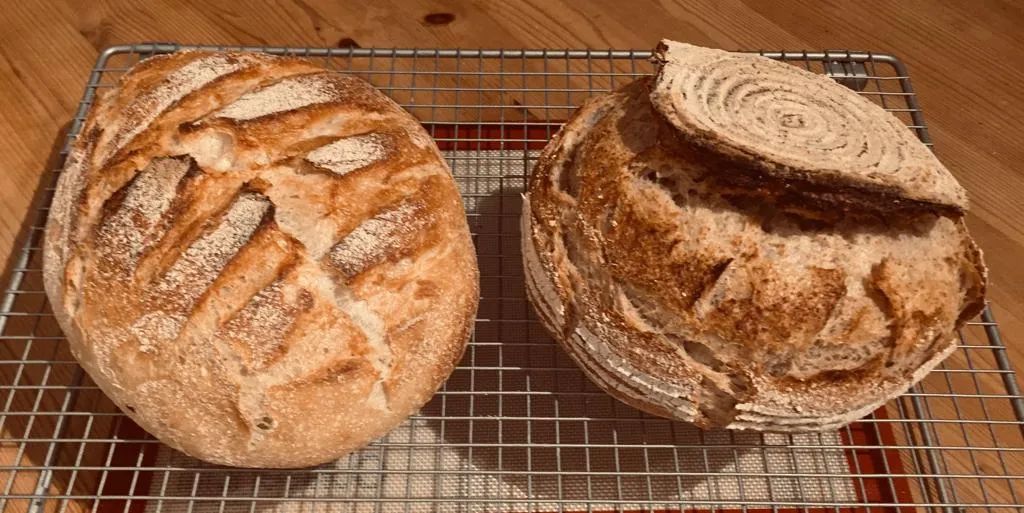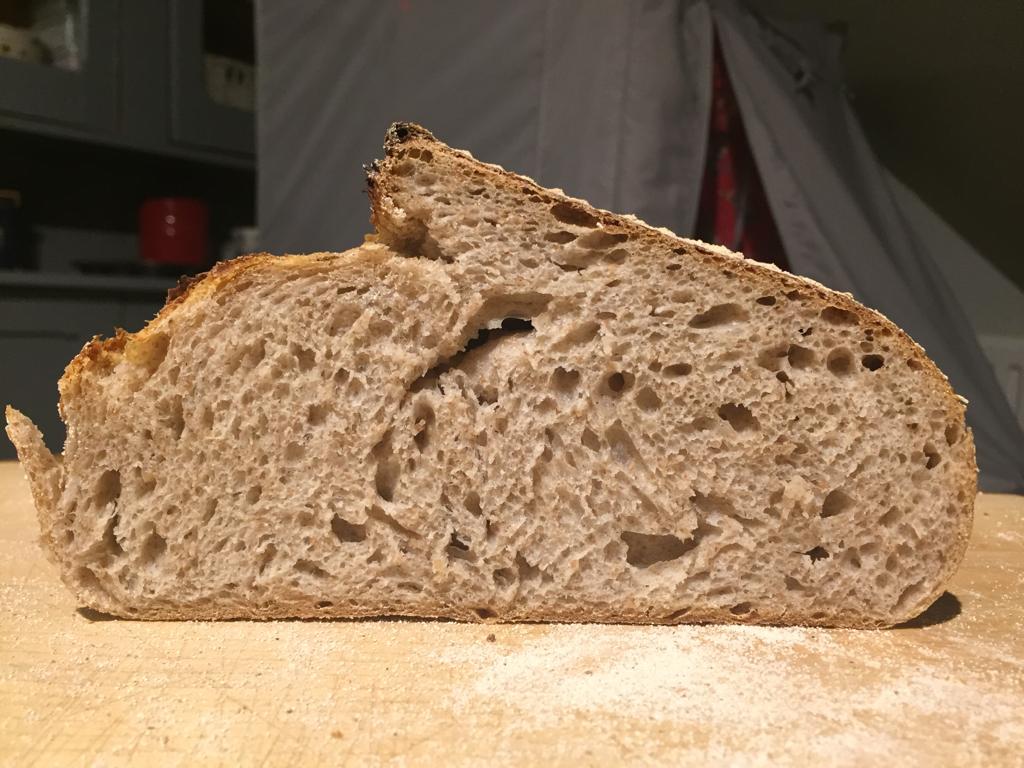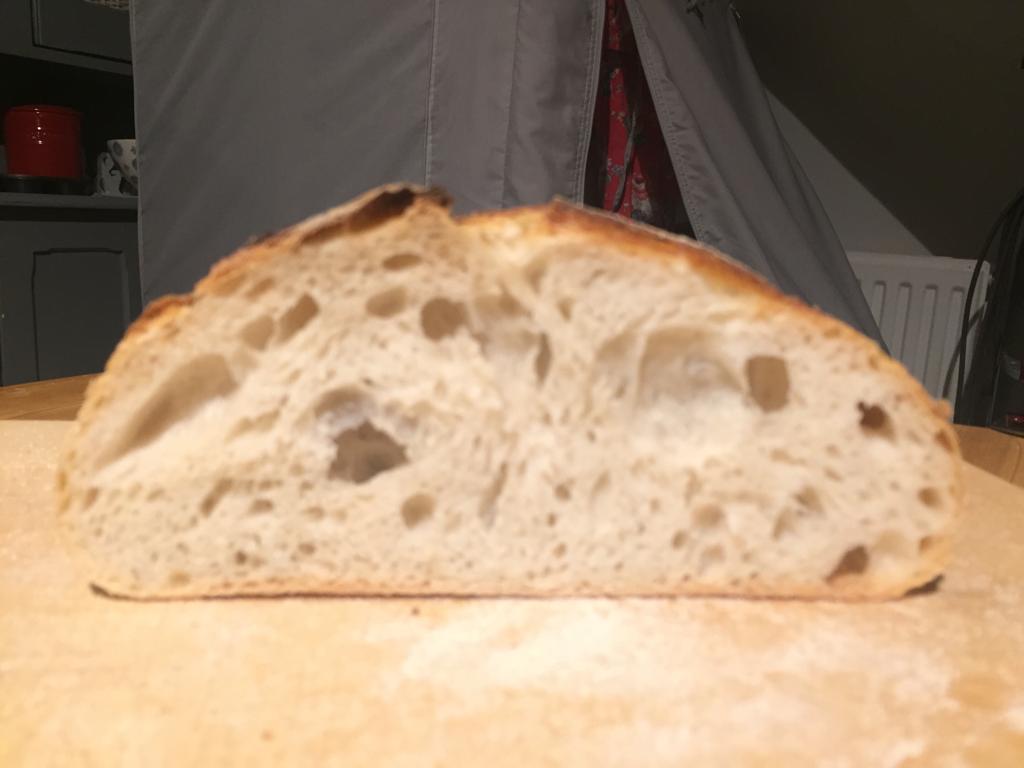
I had not baked sourdough for a few months so I refreshed my starter a few times then tried a little experiment! I usually keep just a rye starter but during the refresh process I decided to feed two versions, one pure white, the other pure wholemeal rye.
My plan then was to make one loaf from the rye starter (300g white flour + 100g rye starter) and another white loaf from the white starter (250g white flour, 50g rye flour + 100g white starter)
I made a mistake and ended up adding the white starter to the all white flour and the rye starter to the white/rye blend ................... (are you keeping up?)
I carried on with it anyway, expecting to be dissapointed ............... I was wrong!
The white had a good spring and open crumb with a nice 'clean' non sour taste, and the rye/white also had a good crumb and of course a nice 'sour' tang. Both were winners (my daughter does not like 'sour' so she was happy, and the rest of us overdosed on the beautiful tasty rye version.
This probably all sounds confusing and unnecessary but if you've stayed the pace the point I want to make is how some 'failures' actually become the success!
Previously I had not thought of adding a rye starter AND a rye mix to the dry flour. I would have expected the crumb to be tighter and less open. I will certainly be doing this one again.
The 'rye' dough was nicer to handle (once proved) and easier to score. It maintained it's shape prior to baking.
It goes to show, you live and learn!
For the curious the final 'mix' was:
'White' 300g white bread flour
100g white starter (100% hydration)
180g additional water
7g salt
'Rye' 250g white bread flour, 50 g wholemeal rye flour
100g rye starter
180g additional water
7g salt
In the end both loaves came out at 66% hydration and the 'rye' loaf was 70 % white
Both baked in a cast iron pot with lid on for 20 mins in a pre heated oven at 250c then 10 mins with the lid off.


to get big holes in your breads. In mine the holes are always small.
There are several right answers to that question, and to actually get the big holes, you have to get all of those answers (or at least most of them) right, at the same time.
Many people will answer with the last change they made, right before they got it to work, thinking that that one thing is the secret - and they're not wrong either, except they're forgetting all the other things that they also did correctly at the same time.
One of the right answers is "First, you have to be making a very similar type of bread" - not all breads are able to do this.
I can't make this happen, and I certainly don't know all the answers. I know that I don't know, which is a start, I guess. ?
it's usually related to hydration, hopefully someone with more experience than me will be along to answer that?
...is definitely one of the necessary conditions. Necessary but not sufficient, as they say.
Many of us endeavor to bake bread with open crumb. Trevor Wilson has published a E-book to address this in great detail. If you are very serious about Open Crumb, this is a definitive resource. https://trevorjwilson.selz.com/item/open-crumb-mastery-for-the-intermediate-sourdough-baker-1-1
Dan
So which level?